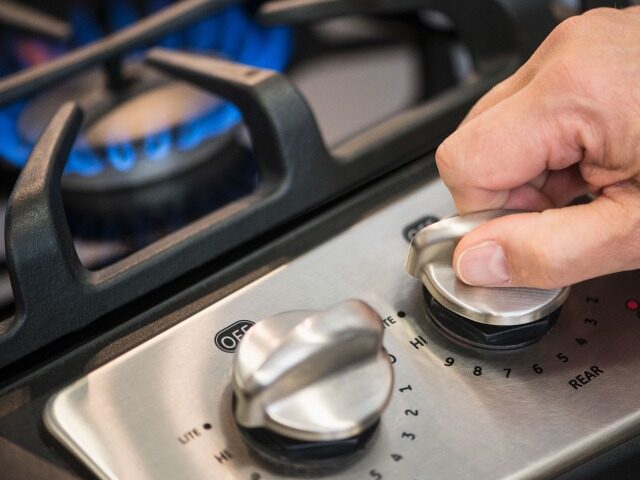New York is urging residents, who are dealing with low air quality due to wildfire smoke descending from Canada, to take steps to reduce pollution in their own lives by “limit[ing] the use of household appliances” and using fans to circulate air rather than air conditioners.
Due to the incoming wildfire smoke from East Canada, New York State Department of Environmental Conservation (DEC) Commissioner Basil Seggos, as well as State Department of Health (DOH) Commissioner Dr. James McDonald, issued an “Air Quality Health Advisory” for several areas of the Empire State. It includes Long Island, New York City Metro, Eastern Lake Ontario, Central New York, and Western New York regions.
The advisory expires at 11:59 p.m. Eastern, listing “Fine Particulate Matter” as the pollutant causing concern and warning that it could cause short-term health issues, affecting the nose, throat, and eyes. It could also trigger coughing and sneezing while exacerbating existing conditions such as asthma.
Watch: THE CITY THAT NEVER SEES — Canadian Wildfire Smoke Casts Haze Over Big Apple
Officials listed nine “energy saving and pollution-reducing steps” for New Yorkers to follow, including using mass transit rather than driving, asserting that automobile emissions compromise “60 percent of pollution in our cities.” The advisory added another outdated reminder, asserting that individuals should only carpool with members of their own household due to the coronavirus pandemic.
“During the current COVID-19 pandemic, people are strongly advised to carpool only with members of their households,” the advisory reads.
The official coronavirus national emergency has been over for weeks, and operations have returned to normal for the majority of the country for well over a year.
The advisory also urged New Yorkers to “limit use of household appliances” and run them “if necessary” after peak hours. Further, it recommended New Yorkers use fans instead of air conditioning.
“If air conditioning is necessary, set thermostats at 78 degrees,” the advisory reads, adding a few other suggestions, which include:
- conserve fuel and reduce exhaust emissions by combining necessary motor vehicle trips;
- turn off all lights and electrical appliances in unoccupied areas;
- close the blinds and shades to limit heat build-up and to preserve cooled air;
- set refrigerators and freezers at more efficient temperatures;
- purchase and install energy efficient lighting and appliances with the Energy Star label; and
- reduce or eliminate outdoor burning and attempt to minimize indoor sources of PM 2.5 such as smoking
It remains unclear how taking any of these steps would reduce the wildfire air pollution issue in the area.
According to NBC News, roughly 98 million people across the country are under air quality advisories due to the incoming wildfire smoke.
Watch: THOSE AREN’T CLOUDS! Smoke from Wildfires BLACKENS the Sky over Yankee Stadium
Video Source: @Majorleaguemadd/SPORTS REPORT+ /TMX
COMMENTS
Please let us know if you're having issues with commenting.